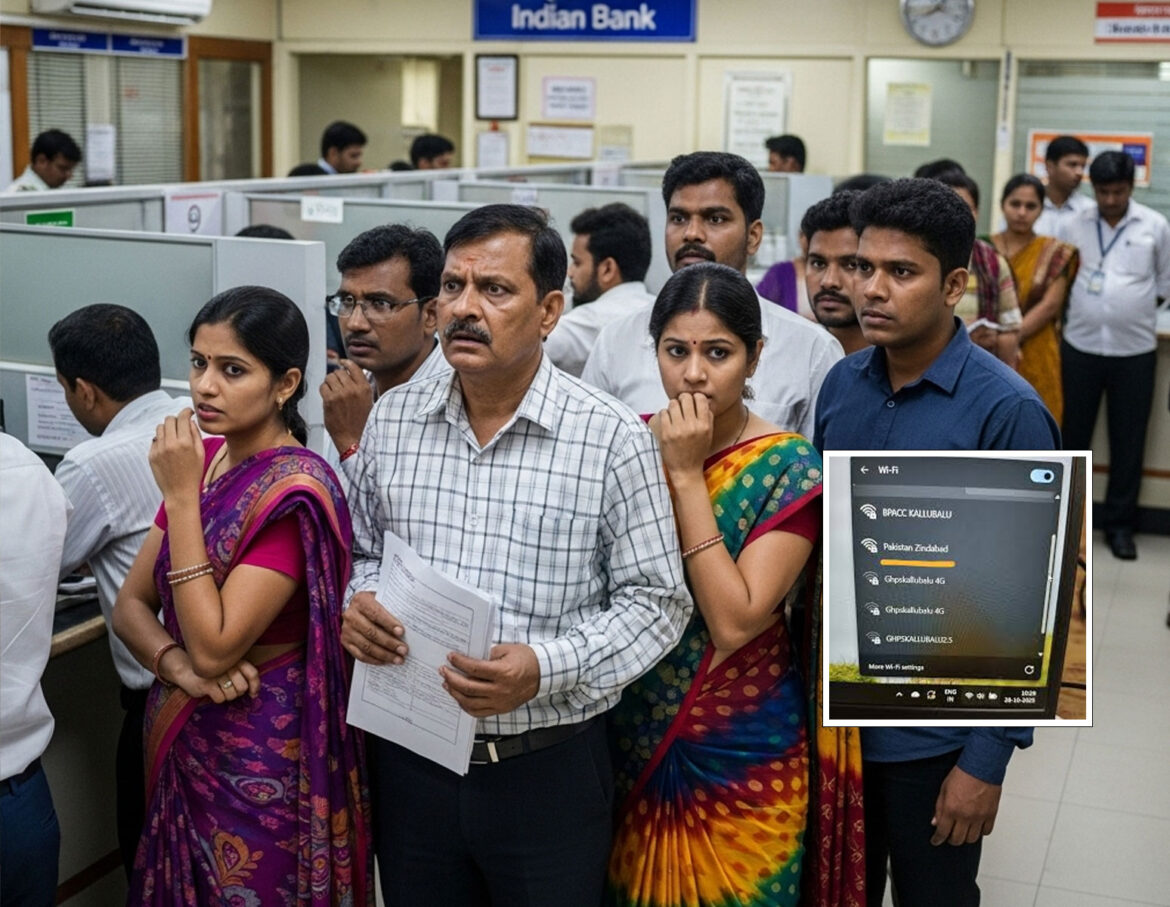Customers at a busy city-centre branch of a major Indian bank were left shocked on Tuesday after the branch’s public Wi-Fi SSID — visible to anyone with a smartphone or laptop — reportedly changed to read “Pakistan Zindabad.” The incident, which lasted for a short period before the network name was reverted, prompted fear and anger among some patrons and a hurried response from bank staff and local police.
Several customers told reporters they noticed the offensive SSID while trying to connect to the branch’s guest network. “People started whispering and a few customers got up to ask the manager what was going on,” said one eyewitness. “It felt tense — some older customers looked worried.” Social media users who posted screenshots said the name circulated quickly, adding to the alarm.
The bank issued a brief statement acknowledging the complaint and saying it had taken immediate steps to secure its systems. “We are aware of an incident involving the guest Wi-Fi SSID at one of our branches. The network name has been changed back and the matter is under investigation,” a spokesperson said. The bank declined to comment on whether the change was caused by an internal prank, a misconfiguration, or an external actor.
Local police confirmed they had received at least one written complaint and were examining CCTV footage and digital logs. “We are treating the matter seriously and will investigate whether this was a mischievous act, a technical error, or an unauthorised access. Appropriate legal action will follow if offences are established,” an officer said.
Cybersecurity experts said the episode highlights a common blind spot: guest Wi-Fi setups in public places can be vulnerable to misconfiguration or easy tampering if not properly managed. “Changing a network’s SSID can often be done from inside the router’s admin panel if default credentials are in use, or it could be spoofed by a nearby device broadcasting a stronger signal with the same name,” noted an independent security consultant.
Politically sensitive messages in public spaces are particularly volatile in India, where such incidents can inflame communal or nationalist sentiments. Several users online called for swift action and transparency, while others urged restraint until authorities completed their probe.
As of publication, the bank says normal services have continued and additional safeguards have been implemented at the branch. Investigations by bank IT teams and local law enforcement are ongoing.



